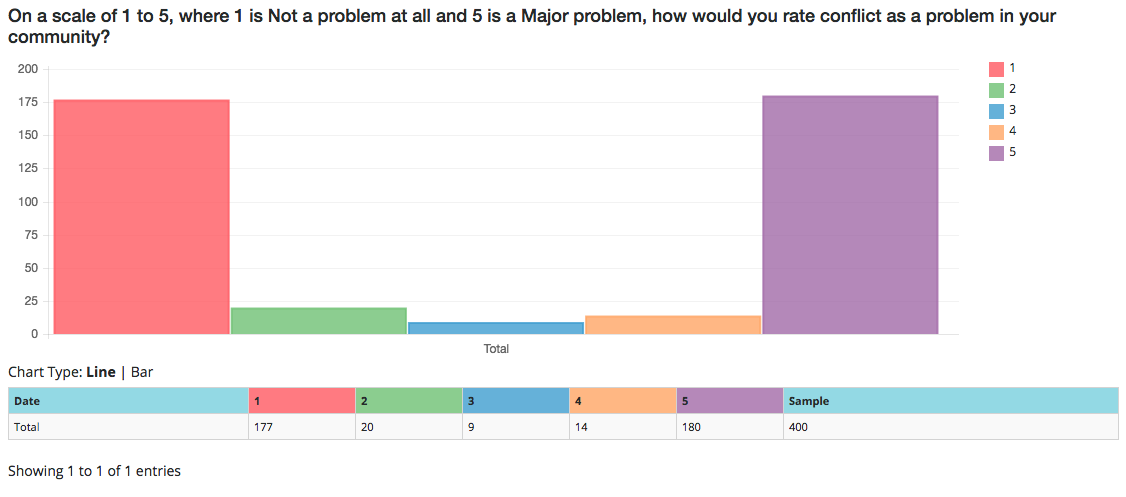- Contents
Ongoing Violence in Ituri Province
Ituri province, a northeastern province in the Democratic Republic of Congo (DRC), has been experiencing increasing levels of violence and unrest. Interethnic fighting stemming from years-old disputes over land use and political differences has grown recently, resulting in more than 40,000 Congolese fleeing the country and even larger numbers becoming internally displaced. It is estimated that since December 2017, over 260 people have died and over 200,000 have left their homes, and in April 2018 the United Nations discovered suspected mass graves that indicate the crisis may be worse than reported.
For humanitarian aid groups and governments looking to measure the severity of the crisis and provide assistance to those in need, on-the-ground data is imperative. However, growing insecurity and the remote nature of the region makes face-to-face data collection difficult – with the lack of internet connectivity and landlines in the DRC compounding the many challenges faced when trying to reach citizens impacted by the conflict.
In a situation like this, remote data collection by mobile phone is one of the best ways to collect data quickly, and so in April 2018, GeoPoll deployed our remote mobile data collection tool to collect vital information from respondents in Ituri province.
SMS Surveys in the DRC Show High Levels of Displacement and Food Insecurity

GeoPoll utilized SMS (text message) surveys to gather on-the-ground data on food insecurity, levels of displacement, and individual opinions on the conflict in Ituri province. Surveys were sent to GeoPoll’s panel of respondents in the DRC, and data was collected in just 2 days. Results can be viewed in full here.
Higlights include:
- Displacement Reported: The majority (60%) of respondents reported that they are displaced from home at the time of the survey.
- Reach of International Aid: About half of respondents are currently receiving food or cash assistance from the government, NGOs, churches, or other sources (49%).
- High Degree of Food Insecurity: Although results of this survey cannot determine the cause of this issue, food insecurity in this province at the time of the survey was very high. In particular:
- 93% of respondents reported that they ate fewer meals in a day over the last seven days; and
- 64% percent of respondents reporting not having sufficient food to feed their family for the upcoming week.
- Differing Opinions on Problem of Conflict: Interestingly, respondents were essentially split on the two ends of the spectrum with their rating of how large of a problem conflict is in their community, with 44% saying that it is not a problem at all, and 45% saying that it is a major problem.
View our case study to read the full report, and contact us with questions, if you would like to request the full dataset, or if you are interested in carrying out your own research project in the DRC.
